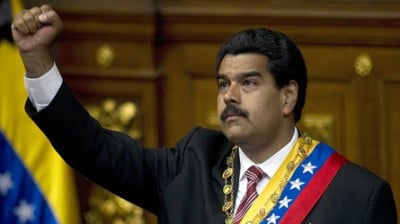RT
Los
ejercicios anuales en el estrecho de Taiwán (o estrecho de Formosa, que separa
la China continental de la isla de Taiwán) incluyen pruebas de sistemas de
lanzamisiles múltiples Thunderbolt-2000, diseñados para destruir a los barcos
enemigos en los accesos a la costa. Además de los misiles, en las maniobras
participarán tanques, artillería y helicópteros de combate.
El presidente taiwanés Ma Ying-jeou, quien inició una mejora en las relaciones
con Pekín, supervisará personalmente los lanzamientos de misiles. En su
discurso a las tropas, pronunciado antes del comienzo de las maniobras, el
presidente señaló que los ejercicios deberían recordar la amenaza que conlleva
el desarrollo de China.
a mejora en las
relaciones con Pekín, supervisará personalmente los lanzamientos de
misiles. En su discurso a las tropas, pronunciado antes del comienzo de
las maniobras, el presidente señaló que los ejercicios deberían recordar
la amenaza que conlleva el desarrollo de China.
"En los últimos años la economía china está experimentando un crecimiento explosivo, y ellos [China] se han dedicado a
modernizar
su ejército. Así que tenemos que fortalecer nuestras fuerzas de defensa
para prevenir la amenaza china y mantener la paz y la estabilidad en
las relaciones entre Taiwán y China," dijo.
Los ejercicios, que involucran a las tropas terrestres, la Fuerza Aérea y
la Marina de Guerra taiwanesa, son las mayores maniobras desde 2008.
Los ejercicios se llevan a cabo en las islas Penghu, situadas a medio
camino entre la China continental y Taiwán.
Las maniobras comenzaron un día después de que China publicara su
libro blanco anual
con datos de su Ejército y doctrina militar, en el que el Ejército de
Taiwán se caracteriza como "la mayor amenaza para el desarrollo pacífico
de las relaciones a ambos lados del estrecho de Taiwán".
Texto completo en:
http://actualidad.rt.com/actualidad/view/92013-taiwan-ejercicios-china
Los ejercicios anuales
en el estrecho de Taiwán (o estrecho de Formosa, que separa la China
continental de la isla de Taiwán) incluyen pruebas de sistemas de
lanzamisiles múltiples Thunderbolt-2000, diseñados para destruir a los
barcos enemigos en los accesos a la costa. Además de los misiles, en las
maniobras participarán tanques, artillería y helicópteros de combate.
El presidente taiwanés Ma Ying-jeou, quien inició una mejora en las
relaciones con Pekín, supervisará personalmente los lanzamientos de
misiles. En su discurso a las tropas, pronunciado antes del comienzo de
las maniobras, el presidente señaló que los ejercicios deberían recordar
la amenaza que conlleva el desarrollo de China.
"En los últimos años la economía china está experimentando un crecimiento explosivo, y ellos [China] se han dedicado a
modernizar
su ejército. Así que tenemos que fortalecer nuestras fuerzas de defensa
para prevenir la amenaza china y mantener la paz y la estabilidad en
las relaciones entre Taiwán y China," dijo.
Los ejercicios, que involucran a las tropas terrestres, la Fuerza Aérea y
la Marina de Guerra taiwanesa, son las mayores maniobras desde 2008.
Los ejercicios se llevan a cabo en las islas Penghu, situadas a medio
camino entre la China continental y Taiwán.
Las maniobras comenzaron un día después de que China publicara su
libro blanco anual
con datos de su Ejército y doctrina militar, en el que el Ejército de
Taiwán se caracteriza como "la mayor amenaza para el desarrollo pacífico
de las relaciones a ambos lados del estrecho de Taiwán".
Texto completo en:
http://actualidad.rt.com/actualidad/view/92013-taiwan-ejercicios-china















